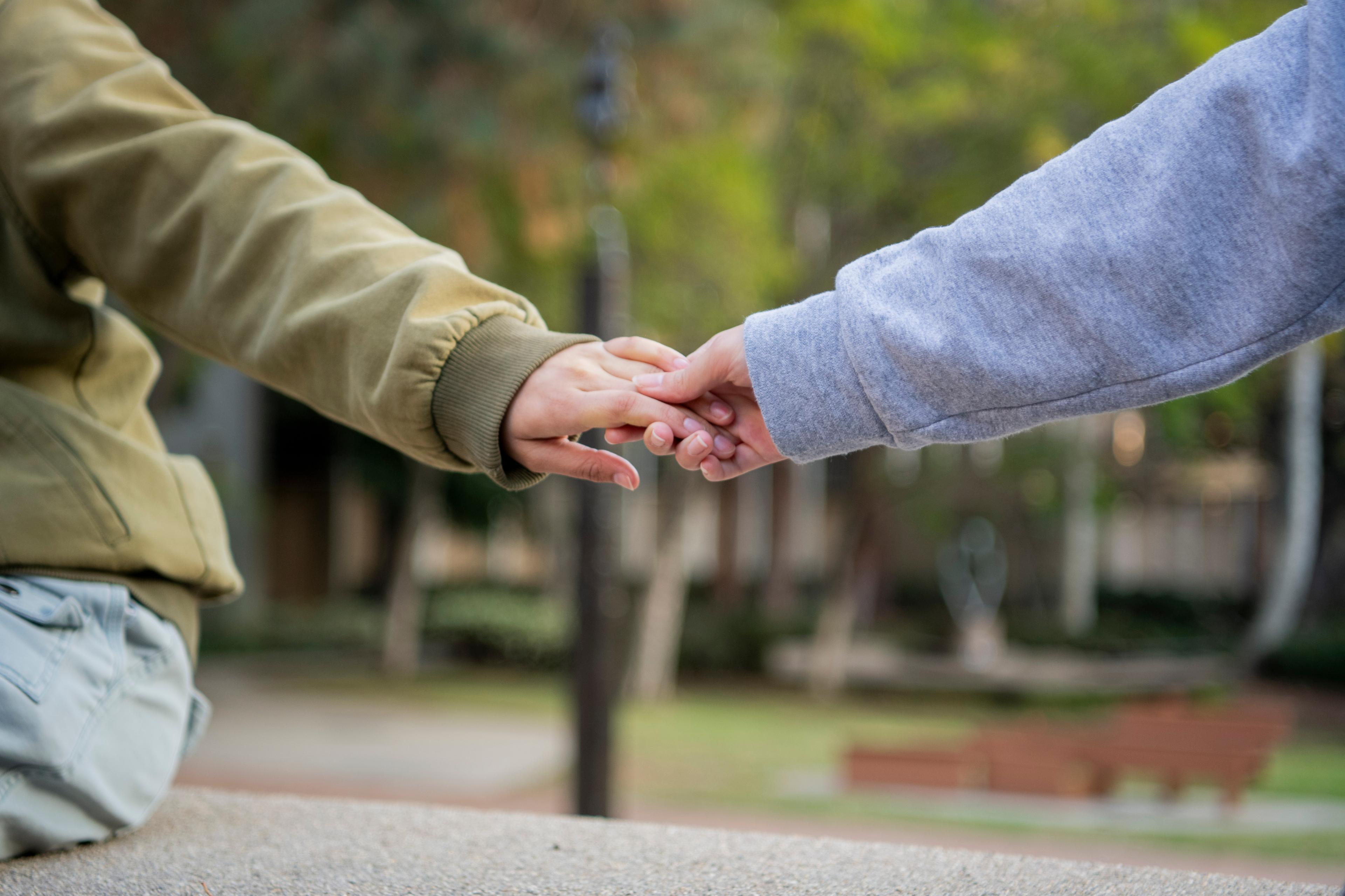Second Take: ‘Situationships’ are a tool to circumvent responsibility, shaped by social media
Photographed are two people holding hands while seated. Situationships have been present in various forms of media, which is then consumed by an audience influenced by romance culture. (Andrew Diaz/Daily Bruin)
By Aisosa Onaghise
Feb. 13, 2025 12:43 p.m.
This post was updated Feb. 13 at 9:05 p.m.
We have found ourselves in a sticky situation…ship.
The term “situationship” has emerged as the latest relationship type among Generation Z adults and adolescents. Defined as an unestablished romantic or sexual relationship, situationships function as a way to explore and engage in romantic affection without the expectation of concrete commitment. However, this mode of romantic connection puts people into more boxes than freeing them from one.
[Related: Second Take: The obsession with celebrity relationships is getting out of hand]
This relationship style is not novel to social and media spaces, nor is it limited to the younger generation. Celebrities Gigi Hadid and Leonardo DiCaprio famously entertained a brief situationship in 2023 with the desire of having a free and unsettled relationship. Model Emily Ratajkowski alluded to being in a situationship with comedian Eric André in a 2023 TikTok after the couple’s split. Situationships have also crossed over into mass media as couples like Carrie and Mr. Big in the HBO television series “Sex And The City” and Summer and Tom in the 2009 film “(500) Days of Summer” explore the dynamics of being in label-free relationships.
Additionally, social media has shaped the relationship landscape and helped promote the prospect of situationships – specifically through dating apps. Platforms such as Tinder, Hinge, Bumble and Grindr have blurred the lines between dating and hookups, creating a seemingly safe middle ground for situationships. The quick, passive swipes and low-effort informational prompt answers offered on these apps initiate disconnect between users and a search for commitment. As a growing number of people seek informal connection both online and offline, situationships appeal to those seeking stress-free romance at no emotional cost.
But situationships do come with a price … and tax.
Situationships are merely a tool for people to circumvent responsibility of their feelings. The idea that this type of relationship is without pressure is a weak facade, justifying a deep desire to claim romantic existence in their life. There is inherent pressure to remove any degree of expectation to maintain the appearance of an expectation-free relationship. This effort oftentimes comes at the expense of the person within the situationship who desires commitment and the label of an exclusive relationship. What is supposed to be a complication-free zone further complicates and denies the feelings of the people involved for the sake of romantic attention.
An increasing online trend of apathy toward vulnerability has also fueled the disconnect that amplifies situationships. People have unironically adopted nonchalant attitudes around romantic feelings in hopes of appearing laidback and undemanding and, therefore, more charming. Expressing too much feeling is perceived to be too clingy, unattractive and a catalyst to the end of a relationship. Situationships then become more appealing to balance the strife of emotional expression. However, the growing obsession to appear detached and unconcerned, especially in situationships, often has the opposite effect. Online nonchalance, which then translates into the real world, picks apart natural feelings of concern to uphold the illusion of being more approachable – a contradictory means of exploring romantic connection.
Since when has it become “cool” and expected to sacrifice feelings for connection and likability?
Though flings and being casual have always been a sector of dating, situationships overcomplicate what is supposed to be unlabeled by becoming the thing it seeks to avoid: a label. Situationships require a level of expectation to keep the people involved on the same page of what their relationship is, whether those intentions are unspoken or not. The appearance of being fluid and unestablished does not minimize the inherent labeling of the term.
With the pressure to remove pressure and remain detached in this relationship form, situationships require rewriting boundaries and expectations to serve the other person. For many, having situationships to keep a partner in their lives is better than having no romantic connection at all. This mindset, however, is extremely isolating. If you have to devalue and diminish your feelings for another person’s attention, that attention is not worth sacrificing yourself for.
Relationships are meant to build up a person, not reduce them. Romantic connection from a situationship is not beneficial when you are sacrificing your feelings and values for an illusion that serves appearances and isolates you from yourself.
[Related: Second Take: Lookalike contests bring social connections offline, demystify celebrity beauty]
For those who find themselves trapped in the ambiguity and confusion of situationships, communication within and outside yourself without fear is essential, not optional. Vulnerability is a friend, not a foe. Labels have been villainized in current culture for putting people into rigid boxes, but they enable people to organize their feelings and realize what they want in the realm of romance. Wanting commitment is OK. Not wanting commitment is also OK. Stick to and prioritize those desires even as they change through the relationship process. Situationships are not the solution to the complexity of relationships but instead muddy them even more.
In a world that is increasingly craving community and connection, being honest and vulnerable with your feelings will give the definite answer to your needs.
